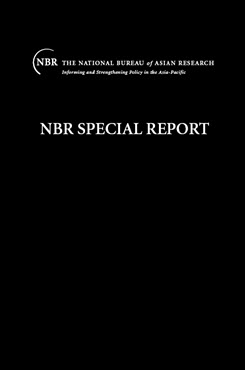NBR Special Report no. 8
Asia's Rightful Place in the American Trade Agenda
The United States has turned away from Asia and subordinated trade policy to foreign policy. We have concentrated on pursuing trade agreements with small but politically strategic countries that offer only marginal economic benefits to the United States. In the process, we have allowed China to increase its influence in Asia—largely at America’s expense. On trade, we have been content to leave Asia to the Asians.
In the past, American trade policy in Asia has been consistently bipartisan and far more active. In the 1990s, a tough U.S. line on negotiating China’s accession to the World Trade Organization persuaded China to reduce its import tariffs to the lowest levels of any developing country. A historic bilateral trade agreement with Vietnam quadrupled our trade with that country, fundamentally changed its trade regime, and is helping to liberalize its economy. Perhaps the most innovative initiative was the Information Technology Agreement (ITA); spearheaded by the United States, Japan, and Singapore, the ITA eliminated duties on information technology trade valued at half a trillion dollars each year.
Rather than build upon these successes, the United States has turned away from Asia and subordinated trade policy to foreign policy. We have concentrated on pursuing trade agreements with small but politically strategic countries that offer only marginal economic benefits to the United States. In the process, we have allowed China to increase its influence in Asia—largely at America’s expense. On trade, we have been content to leave Asia to the Asians.
Trade, aid, and other economic agreements are certainly important tools to accomplish foreign policy goals. However, with one in ten American jobs dependent on international trade—a number that is sure to grow, we must base our trade policy on economics, not politics.


